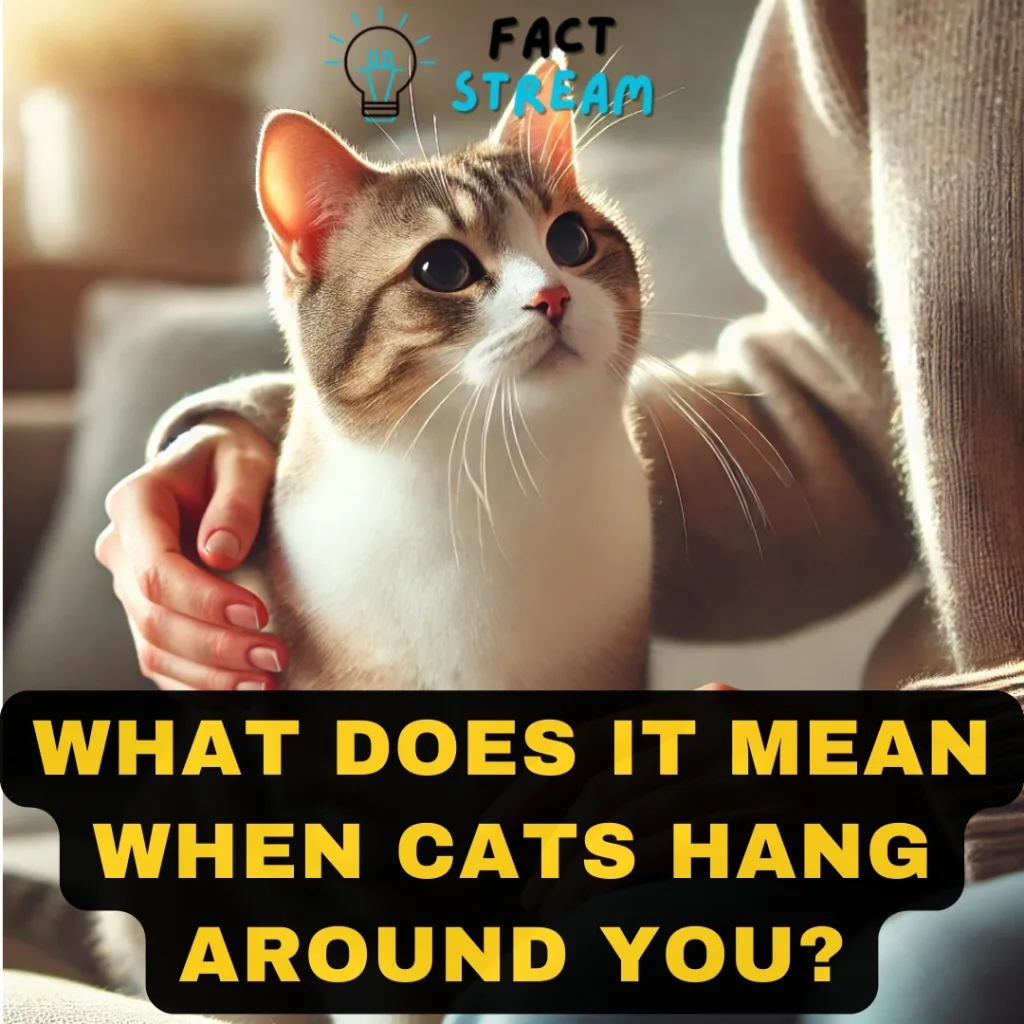What Does it Mean When Cats Hang Around You?
Have you ever noticed a stray cat hanging around your house and wondered, “Why me?” You’re not alone! Cats, with their mysterious ways, often leave us humans puzzled. Let’s explore the possible reasons why a cat might choose to spend time near you and what those actions might mean.
Why Does a Stray Cat Keep Coming to My House?
There are a few key reasons a stray cat might be lingering around your home:
Basic Needs:
- Food and Water: The cat might be hungry or thirsty, especially if it’s a stray or feral cat. Your home could represent a reliable source of food and water, either from you directly or from scraps or bird feeders.
- Shelter: Cats seek out safe and comfortable places to rest and escape the elements. Your porch, shed, or even a bush in your yard might be an appealing shelter.
Social Factors:
- Entertainment: Even cats get bored! They might be looking for some amusement and see you or your property as a source of entertainment.
- Attention: Some cats, especially those that have been socialized, might crave attention and interaction.
- Trust and Connection: A stray cat might sense that you’re a kind and trustworthy person, leading them to feel safe and comfortable around you.
What Does It Mean When a Cat Shows You Affection?
If a stray cat is showing you signs of affection, it’s a pretty good indication they like you. Here are a few common feline expressions of fondness:
- Head Butts: Cats have scent glands on their cheeks and head, and when they rub against you, they’re marking you with their scent. This is a sign of trust and affection.
- Slow Blinks: A slow blink from a cat is like a smile. It’s a sign of relaxation and trust.
- Purring: A purring cat is usually a happy and content cat.
- Grooming: Cats groom each other as a sign of bonding, so if a stray cat starts grooming you, it’s a sign of deep trust.
- Bringing Gifts: Cats sometimes bring “gifts” of prey to their loved ones. If a stray cat presents you with a dead mouse or bird, try not to be too horrified! They’re just trying to show their affection (in their own unique way!).
Feral vs. Stray: What’s the Difference?
It’s important to understand the distinction between a feral cat and a stray cat:
- Stray cats are cats that were once pets but have become lost or abandoned. They are generally more comfortable around people and may be adoptable.
- Feral cats were born and raised outdoors and have had little or no contact with humans. They are typically wary of people and are not suitable for indoor living.
If you encounter a friendly stray cat, you can help them by:
- Checking for a Collar or Tag: This could help you reunite them with their owner.
- Contacting a Local Shelter or Rescue: They can scan the cat for a microchip and help find their owner or provide care if the cat is truly a stray.
- Providing Food and Water: If you’re comfortable, you can offer food and water to the cat, especially if it seems hungry or dehydrated.
The Spiritual Meaning of a Stray Cat Choosing You
Some people believe that encountering a stray cat carries a deeper spiritual meaning:
- Good Luck and Prosperity: In some cultures, stray cats are seen as symbols of good luck and prosperity.
- Spiritual Guidance: Others believe that stray cats can act as spirit guides, offering protection and wisdom.
- A Reflection of Your Energy: It’s also thought that stray cats are drawn to people with certain energies, such as kindness, compassion, or spiritual awareness.
Building Trust with a Stray Cat
If you want to help a stray cat and potentially build a relationship with them, patience is key. Here are a few tips:
- Offer Food and Water Regularly: This will help establish trust.
- Approach Slowly and Gently: Avoid sudden movements or loud noises.
- Let the Cat Approach You: Don’t force interaction.
- Talk to the Cat in a Soothing Voice: This can help them feel more comfortable.
Remember: Not all stray cats will become cuddly companions. Some may always prefer to maintain their distance. Respect their boundaries.
What If My Cat Follows Me Everywhere?
If you have a cat that seems particularly attached and follows you everywhere, it’s usually a sign of affection and a strong bond.
However, excessive clinginess can sometimes indicate an underlying issue, such as:
- Boredom: Cats need enrichment and stimulation. If they’re bored, they might follow you for entertainment.
- Anxiety or Insecurity: Cats can experience anxiety, and following their owner can be a way of seeking comfort.
- Medical Issues: Changes in behavior can sometimes be a sign of a health problem. If your cat’s clinginess is sudden or extreme, consult with your veterinarian.
To help a clingy cat:
- Provide Plenty of Enrichment: Offer toys, scratching posts, and interactive play sessions to keep them entertained.
- Create a Safe and Predictable Environment: Stick to a routine and minimize changes that could cause stress.
- Consider a Second Cat: Sometimes, a feline companion can help reduce clinginess. However, it’s important to introduce cats properly to avoid conflict.
Key Takeaways: What to Remember When Cats Hang Around You
- Understand their motivations: Cats might be seeking food, shelter, attention, or simply enjoying your company.
- Recognize the signs of affection: Head butts, slow blinks, purring, and grooming are all signs of a cat’s love.
- Respect their boundaries: Not all cats will want to be petted or picked up.
- Be patient and understanding: Building trust with a stray cat takes time.
- Seek professional help if needed: If a stray cat seems injured or ill, or if your own cat’s behavior is concerning, contact a veterinarian or animal shelter.
Whether you’re wondering about a stray cat’s intentions or trying to decipher your own cat’s clingy behavior, remember that cats are complex creatures with their own unique ways of communicating. By understanding their needs and motivations, we can build stronger bonds with our feline friends.


